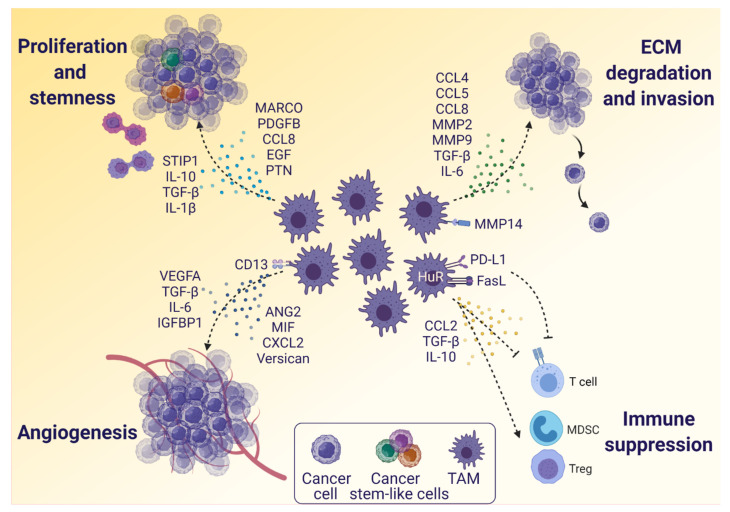Figure 3.
The influence of TAMs on glioblastoma cells. TAMs express many factors that promote major biological functions in tumor progression. Glioblastoma proliferation and stemness are highly affected by TAM-secreted factors, such as cytokines and growth factors. Angiogenesis, the essential process of neovascularization in glioblastoma tumors, is also promoted by several TAM-derived factors, including VEGF and VEGF-inducing factors, but also VEGF-independent pathways. Additionally, glioblastoma invasion is promoted by TAM-produced MMPs and cytokines inducing extracellular matrix (ECM) degradation and facilitating migration. Moreover, TAMs express factors to suppress anti-tumor immune responses. Pro-inflammatory cytotoxic T cells and helper T cells are inhibited, while anti-inflammatory myeloid-derived suppressor cells (MDSCs) and regulatory T cells (Tregs) are attracted to the tumor, where they facilitate tumor immune evasion. Abbreviations: stress-induced phosphoprotein 1 (STIP1), macrophage receptor with collagenous structure (MARCO), platelet derived growth factor B (PDGFB), epidermal growth factor (EGF), pleiotrophin (PTN), insulin-like growth factor-binding protein 1 (IGFBP1), angiopoietin (ANG2), macrophage migration inhibitory factor (MIF), Fas ligand (FasL). Created with BioRender.com (accessed on 16 August 2021).

